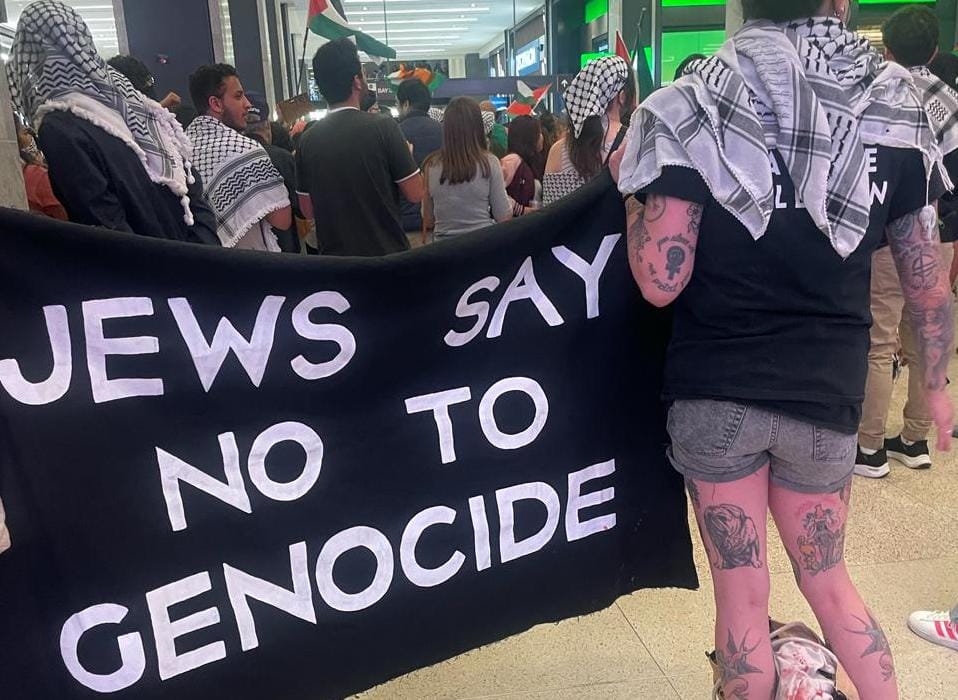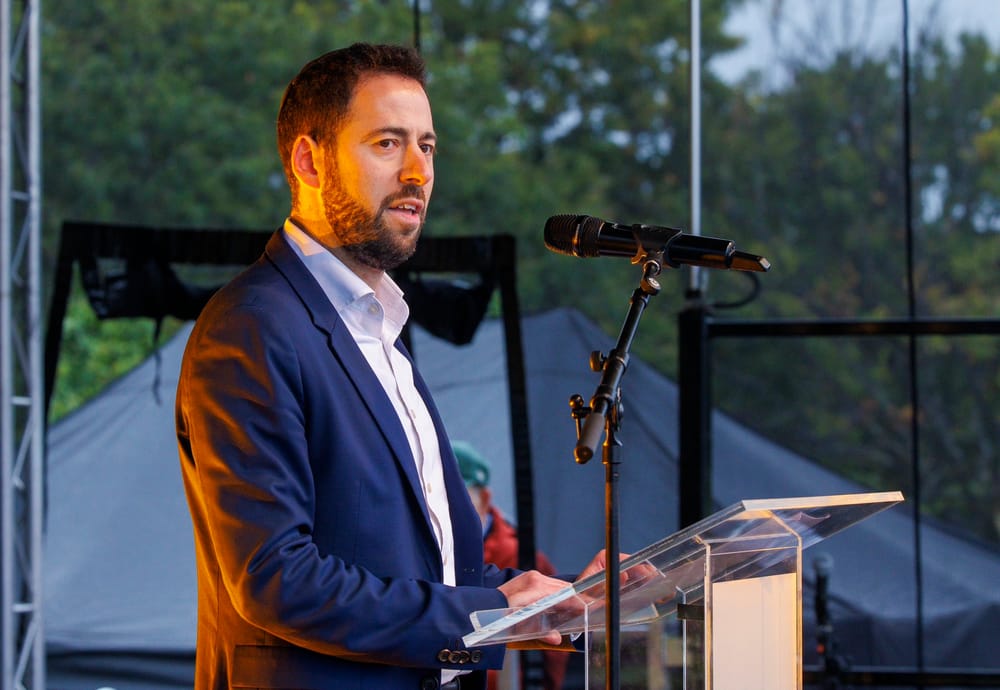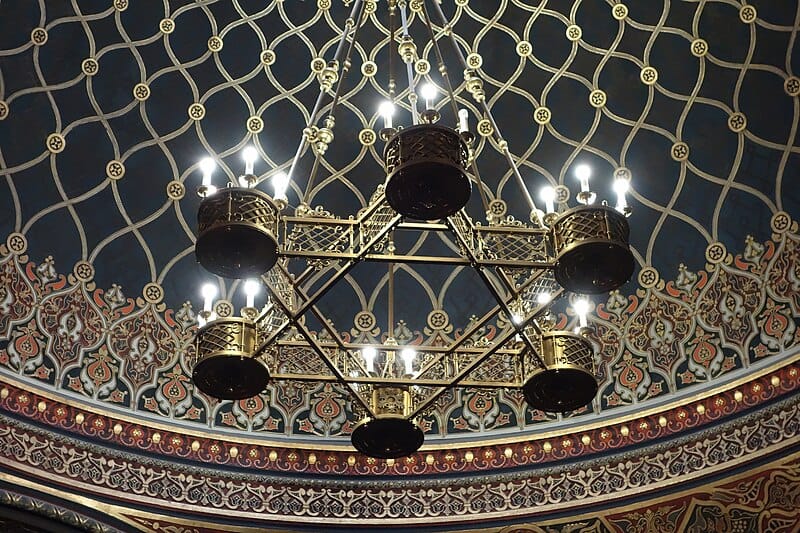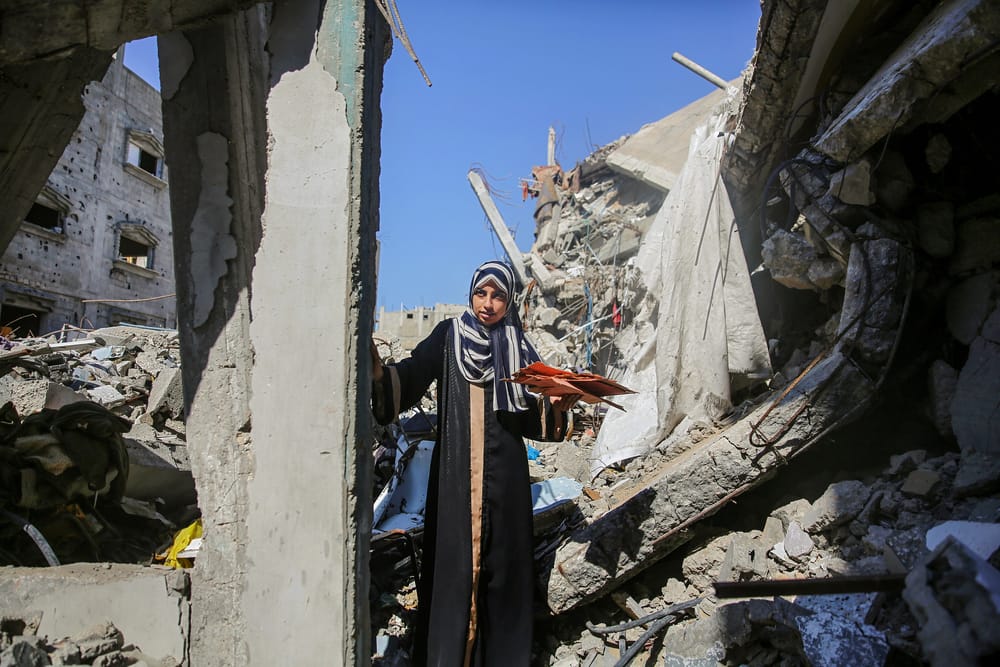“Justice thou shalt pursue”: Canada’s Jewish left commits to anti-Zionism
In the months following 7 October, the Canadian Jewish left’s largest organisation declared itself anti-Zionist. One member of Independent Jewish Voices Canada explains why.

Tears fill my eyes as we hold our shabbat for ceasefire at the University of Toronto’s student encampment. A massive group of community members, students, faculty, and staff sing together inside the fence as police and campus security surveil us. When I was a student during the 2014 attack on Gaza, I never imagined such a sight would be possible on a university campus. Over 200 days into the bombing, the world’s resolve to stop this genocide has only grown stronger.
Despite condemnations of Palestine solidarity rallies by the media and politicians, Canadians have flooded the streets in record numbers as Israel’s genocidal actions and ethnic cleansing have progressed since October. Nearly 500 actions have taken place in Toronto alone. These actions have included large numbers of Jewish members, a particularly notable fact in Canada, where not a single synagogue is outwardly pro-Palestine.
Canada has the world’s fourth largest population of Jews, following Israel, the US, and France. About half of the nearly 350,000 Canadian Jews live in the Greater Toronto Area. Eastern European Jews began migrating to Canada in the mid-1800s, establishing the first Toronto synagogue in 1856. Jewish migrants also created cultural spaces beyond synagogues, including Yiddish theatres, bookstores, schools, and delicatessens. In the 1920s, many Toronto Jews worked in the garment industry and were integral in organizing and unionizing for better wages and working conditions. These politics spilled beyond the workplace and built a culture of social justice that included worker rights, migrant rights, and antifascism.
On 15 October 2023, left-leaning Jews in Toronto organized an impromptu vigil and mourners kaddish for Gaza. Hundreds joined us, seeking Jewish community with room for mourning Gaza. In November, a coalition called Jews Say No to Genocide formed in Toronto to bring a strong Jewish voice to the movement, in part inspired by actions organized by US Jews. This coalition included If Not Now Toronto, Independent Jewish Voices Toronto, Showing Up for Racial Justice Toronto, World Beyond War, United Jewish People’s Order, and Jewish Faculty Network.
Unlike Jewish activists in the United States, we know that our government holds little sway within the international community. Yet, similar to resistance efforts in the UK, activists and researchers have traced the ways that Canada invests in Israeli occupation through arms sales, trade agreements, and bank and pension investments. Canada was one of the first countries to cut UNRWA funding (now restored) and has failed to grant a single humanitarian visa to Palestinians in Gaza. Canadian activists have been focused on forcing our members of Parliament to call for a permanent ceasefire, a two-way arms embargo, and an end to diplomatic relations with Israel.
At the same time, Jewish Canadian groups lobbying for Israel have been fanning the flames. Antisemitic attacks have occurred, but B’Nai Brith also logs incidents of anti-Israel sentiment as antisemitic according to the IHRA definition and on this basis claims hate crimes against Jews have reached record highs. The Centre for Israeli and Jewish Affairs is actively advocating for the federal government to roll back its reinstatement of funding for UNRWA and campaigning against people who speak out in support of Palestine. Yet at a March protest against an event selling real estate in Israel, a pro-Israel demonstrator shot at people with a nail gun and called for the death of all Palestinians. The continued disconnect between Israel lobby groups and the general public has compromised their credibility and encouraged some in the Jewish community to seek out alternatives that better represent them.
For many Jews in Canada, this means not only questioning Israel’s actions, but engaging in a full reckoning with Zionism. Three months ago, Independent Jewish Voices Canada (of which I’m a member) – the largest and most prominent Jewish activist group in Canada that stands opposed to Israel's occupation of Palestine – passed a landmark motion to declare itself anti-Zionist.
Zionism does not speak for us
Independent Jewish Voices Canada (IJV) formed in 2008 out of the Alliance for Concerned Jewish Canadians, a broad anti-occupation group critical of mainstream Jewish voices on Israel. In 2009, IJV became the first national Jewish organisation in the world to officially join the call for an international boycott, divest, and sanction campaign against Israel. IJV membership, which hovered around a little over 1000 people before October last year, has almost doubled in the last six months. It is geographically centred in Ontario, Quebec, and Vancouver and mostly consists of Ashkenazi Jews. Historically, most members have been aged over 40, but younger activists have joined the movement in larger and larger numbers since 2021. Prior to 7 October, a key focus of the group has been opposing the International Holocaust Remembrance Alliance (IHRA) definition of antisemitism.
IJV did not historically take a stance on Zionism, but its work consistently critiqued conflations of Israel and Judaism. The Hamilton, Ontario chapter of IJV, for example, has long-owned a banner that states: “anti-Zionism does not equal antisemitism”. Members' efforts in recent years, however, laid the groundwork for the decision to formally adopt a stance of anti-Zionism, as discussion on the topic occurred openly at several recent Annual General Meetings (AGMs).
Last year, though, was a significant turning point. At the June 2023 AGM, IJV formally discussed a resolution to adopt a national position of anti-Zionism. This raised passionate and, at times, antagonistic, debate between members. Ultimately, the membership voted to adopt a second resolution, to form a committee to explore potential benefits and losses of becoming an anti-Zionist organization, reporting back at the following AGM. With the committee still at work, IJV nevertheless decided to publicly declare itself anti-Zionist this past February, which we will officially ratify at the 2024 AGM.
Though IJV remained ambivalent on Zionism during the 2014 and 2021 wars on Gaza, the current genocide and the media discourse of anti-Zionism as synonymous with antisemitism required us to take a strong stance. As one of the few national groups in Canada challenging the notion that Palestinian solidarity is harmful to Jews, it was important to align our organisational values with our actions. To show up for Palestine at this moment requires a strong and clear analysis of Zionism and why we oppose it. Indeed, the role of Jews in this moment is to clearly and loudly state: Zionism does not speak for us.
No “Plan B” Country
For many Jews raised in a legacy of social justice causes, the genocide of Palestinians in the name of a Jewish state cannot be squared with our values. In a country where unmarked graves of Indigenous children have been found outside residential schools and many First Nations still do not have access to clean water, we in Canada are intimately familiar with settler colonialism. Reckoning with this legacy at home, while seeing unmistakable parallels in Palestine, becomes impossible to justify. Many in the Jewish community were impacted by the attacks on 7 October, but with every passing day that Israel continues its massacre of Gaza and dehumanization of Palestinians, the human cost of “defending” Jewish life becomes more and more inexcusable.
For those who have learned that Zionism is an integral part of Jewish identity, rejecting Zionism can come with a loss of community and sense of self. But new Jewish communities are emerging and helping others grow through their example. Jewish Voice for Peace (JVP) fundamentally shifted the possibilities for Jewish groups undertaking Palestinian solidarity work when, in 2014, it explicitly declared itself an anti-Zionist organization. Indeed, our own discussions in IJV have often been spurred by the stances of other organizations we align with, including JVP and the International Jewish Anti-Zionist Network. In the past few years the issue of anti/Zionism has continued to surface and there is now a palpable shift in the direction of anti-Zionism. Groups like Jews Against White Supremacy (JAWS) launched at the end of August 2023 as an explicitly anti-Zionist movement seeking to challenge Zionist institutions, while others, such as Shoresh (a group of anti-Zionist Israeli activists in the United States) have emerged in the past seven months.
Today in Canada, despite the dearth of supportive mainstream institutions, Jewish anti-Zionist community is growing. For someone like myself who grew up with Zionism rooted as a key part of my Jewish identity, the idea of Judaism beyond Zionism seems like radical dreaming. Yet, Toronto has had a long and rich history of anti-Zionist, revolutionary socialist Jewish community since the early 1900s. Jewish anarchists like Emma Goldman and organisations like the United Jewish People’s Order have long-practiced Judaism based in community, ethics, and diasporic Jewish culture. The revival of the Bundist notion of doykayt, or “hereness”, is also gaining resonance in direct response to Zionism.
IJV has a bright future as an anti-Zionist community and campaigning organisation in this lineage. By committing to a Judaism beyond Zionism, we abandon the notion of a “plan B” country and instead build the world we want to see wherever we are located. For us, this means building connections through Jewish rituals like our shabbat for a ceasefire events and our liberation seder. It means showing up for migrant justice and challenging racism within the Jewish community. These values have always guided our actions, but naming them as explicitly anti-Zionist helps connect us to a history and legacy. We ground ourselves in a Judaism that tells us “justice, justice, you shall pursue” and we understand our fight is against all forms of fascism anywhere it exists, from Canada to Kashmir to Tamil Eelam, to Palestine.▼
Anna Lippman is a PhD student at York University. She organizes with several groups in Toronto including Showing Up for Racial Justice and Independent Jewish Voices, and is a third generation Ashkenazi Jewish migrant on Turtle Island.
There’s no corporation or big advertisers behind Vashti – we're a workers' cooperative and rely on small donations to keep running. Support our journalism to help break the consensus.
To donate once, click here. To donate monthly, click here.
Author
Anna Lippman is a PhD student at York University. She organizes with several groups in Toronto including Showing Up for Racial Justice and Independent Jewish Voices.
Sign up for The Pickle and New, From Vashti.
Stay up to date with Vashti.



